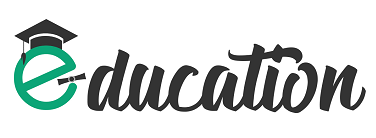Singapore’s secondary educational system is well-known for its challenging curriculum, particularly in subjects such as English. With students advancing into their secondary years, a thorough grasp of the English curriculum becomes progressively crucial. Delve into the various components that make up the secondary English curriculum in Singapore, shedding light on the intricacies and highlighting the role of supplementary support, such as secondary English tuition in Singapore.
Introduction to the Secondary English Curriculum
The secondary English curriculum in Singapore is crafted to expand upon the fundamental skills acquired during primary education. It constitutes a multifaceted program covering language proficiency, literature appreciation, and critical thinking skills development.
Language Proficiency
A fundamental element of the secondary English curriculum revolves around language proficiency. The desired result of the English curriculum is to instil confidence in learners for effective communication in personal, academic, and professional settings using the English language. To attain this goal, students’ English reading, writing, listening, and speaking skills are consistently refined.
In secondary English tuition, instructors often focus on reinforcing and enhancing language proficiency through targeted exercises, discussions, and practical applications. These additional classes provide students with a supportive environment to strengthen their grasp of grammar, vocabulary, and language mechanics.
Literature Appreciation
Another integral aspect of the secondary English curriculum is literature appreciation. Students delve into various literary pieces, encompassing novels, poems, and plays. This exposure acquaints them with different writing styles and fosters the cultivation of critical thinking and analytical skills.
Secondary English tuition plays a crucial role in helping students navigate the complexities of literature. Tutors often delve into in-depth discussions, dissecting literary devices, themes, and character development. This supplementary support aids students in developing a deeper understanding and appreciation for literature, which is valuable in examinations and in developing a lifelong love for reading.
Critical Thinking and Analysis
The ability to think critically and analyse information is a cornerstone of the secondary English curriculum. Students are urged to delve deeper into the content of a text, challenging assumptions and constructing well-supported opinions. This proficiency is crucial for achieving academic success and for navigating the intricacies of the contemporary world.
In secondary English tuition classes, instructors focus on nurturing critical thinking skills. Through thought-provoking discussions, essay writing, and interactive activities, students learn to approach texts with a discerning eye. This supplementary education reinforces the analytical skills needed to excel in English examinations and beyond.
Integration of Technology in the Secondary English Curriculum
In the continuously evolving realm of education, the incorporation of technology is progressively gaining prominence within the secondary English curriculum. Digital tools and online resources now elevate learning experiences, offering students a platform to interact with the language in inventive ways.
Online Platforms and Interactive Learning
Using online platforms is a notable component of the modern secondary English curriculum. These platforms provide interactive lessons, quizzes, and multimedia resources tailored to various learning styles. Students have access to a wealth of information, facilitating self-paced learning and reinforcing classroom teachings.
In secondary English tuition in Singapore, incorporating technology is equally crucial. Teachers employ online resources to supplement traditional teaching methods, providing students with a dynamic and enriching educational experience. Integrating traditional and technological approaches ensures a well-rounded education, preparing students to face the demands of the 21st century.
The Role of Secondary English Tuition in Singapore

Given the high expectations of the secondary English curriculum in Singapore, many students and parents opt for supplementary support through secondary English tuition. These classes offer personalised attention, targeted instruction, and a supportive environment for students to strengthen their English skills.
Addressing Individual Learning Needs
A pivotal advantage of secondary English tuition is its capacity to cater to individual learning needs. Within a classroom environment, students often exhibit diverse proficiency levels and learning styles. Secondary English tuition facilitates a more personalised approach, concentrating on specific areas where a student might require supplementary support.
Exam Preparation Strategies
As students progress through their secondary education, the importance of examinations becomes more pronounced. Secondary English tuition is designed to reinforce academic concepts and to equip students with effective exam preparation strategies. This curriculum includes time management, essay structuring, and understanding the assessment criteria.
Conclusion
The secondary English curriculum in Singapore is a comprehensive and demanding program that aims to equip students with language proficiency, literature appreciation, and critical thinking skills. The integration of technology and the growing popularity of secondary English tuition in Singapore further enhance the educational landscape, providing students with the tools and support needed to excel in their English studies. As students navigate the challenges of the secondary English curriculum, the combination of classroom learning and supplementary support ensures a holistic and enriching educational experience.
Journey through a transformative learning experience where language proficiency meets personalised guidance. Contact The Thought Tailor Learning Centre to learn more.




